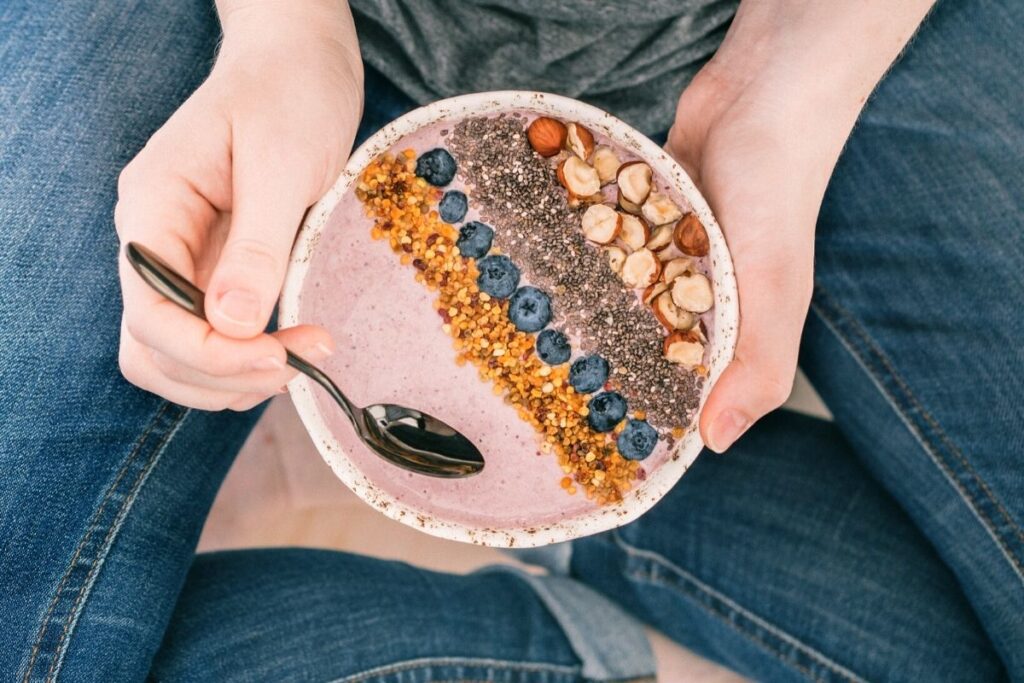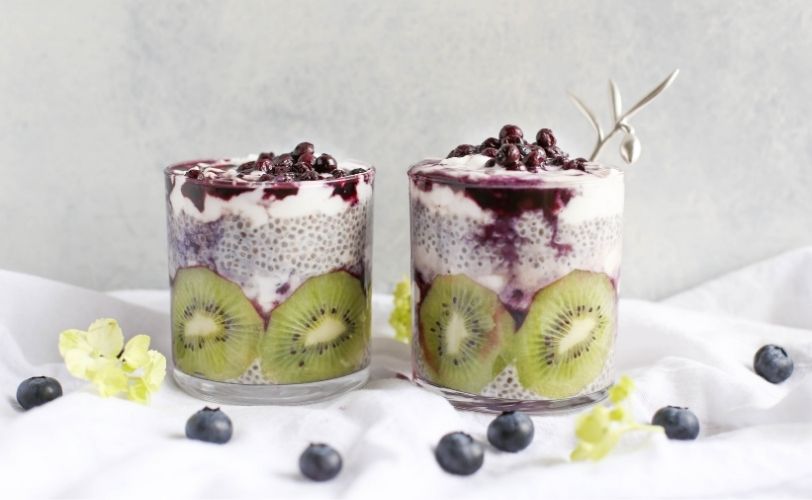Can seed cycling help with PMS?
A growing trend in the female hormone wellness space, seed cycling is thought to have a plethora of natural health benefits that can regulate reproductive hormones, ease PMS, boost fertility and diminish symptoms of the menopause. But can seeds really have a significant effect on the inner workings of such an important network? The jury is still out on a definitive answer, so let’s look a little deeper.

Many people who have female reproductive organs have a love/hate relationship with hormones. Vital in their influence on the immune system, brain development, reproductive system, growth and mood, at certain stages of life, hormones can persistently affect our mental health and external bodily functions that may leave us feeling less than under par.
In this instance, I’m talking about PMS (premenstrual syndrome/premenstrual tension (PMT)), a very real collection of unpleasant symptoms you may experience in the lead up to having your period. You might turn to synthetic hormone support like the contraceptive pill or use over-the-counter painkillers to manage pain. But many are now seeking out a more natural approach, and seed cycling could be the answer.
What is seed cycling?
Seed cycling is the naturopathic practise of using specific seeds as dietary supplements at certain times of the month, to influence healthy levels of the sex hormones estrogen and progesterone.
The practice isn’t anything new, and there is a lack of scientific evidence to underpin seed cycling, but many anecdotal reports suggest it could significantly ease symptoms of PMT by theoretically complementing the natural hormone changes in your cycle.
Dr Shree, Gynaecologist for INTIMINA notes that some studies have come to light, suggesting positive outcomes, “There’s a limited amount of research on this area, but studies suggest that upping the amount of seeds you eat may alter your hormonal balance, particularly in the second half of your menstrual cycle and therefore target the symptoms you experience leading up to your periods.”

Some of the recorded benefits of practising seed cycling include:
- easing mood swings, night sweats and fatigue
- regulating periods
- reducing acne
- positively influencing symptoms of PCOS and Endometriosis
- increasing fertility
Your monthly cycle contains four stages: menstruation, follicular, ovulation and luteal. At each of these stages, your hormone levels fluctuate rapidly, influencing the menstrual cycle and playing havoc with anything from skin health to mood. Each of these stages can be supported through gentle nutritional consideration and supplementation: enter seed cycling.
How seed cycling supports PMT
Flax, sesame, sunflower and pumpkin seeds are the nutritional powerhouses I’m talking about here. Including seeds in your daily diet adds a myriad of other health benefits and many people now swear by seeds to manage their moods.
These four seeds are thought to balance your hormone levels and influence more regular periods which in turn calms symptoms of PMS and keeps your overall menstrual health in equilibrium.
After coming off the contraceptive pill last year, travel and lifestyle blogger behind The Layover Life Jess Parr noticed she was experiencing low mood in the week before her period and started looking for more natural methods to balance her hormones. Whether it’s a placebo effect, lifestyle influences or the practice of seed cycling for the past four months, Jess notes that using seeds has become a logical way to combat her PMT, and doesn’t plan to stop!
“After the first month of seed cycling daily, I noticed my next cycle had no low/anxious moods the week before my period. I don’t know if that is completely to do with seed cycling or other lifestyle factors contributed to this but I felt great and I’ve kept it going because the fear of those moods returning is REAL!
“I’m no certified nutritionist, but I, after 31 years on this planet, do feel that I can recognise what my body needs and responds to. Also by reading up on seed cycling, it makes complete sense that ingesting certain foods that can balance hormones seems a logical way to combat PMS so I don’t plan on stopping any time soon.”
The stages of seed cycling
Seed cycling occurs in two stages:
Stage one: menstruation and follicular (phases one and two of your cycle)
From day one (of bleeding) to day 13 of your cycle, you’ll eat a daily dose of one tablespoon of flaxseeds, and one tablespoon of pumpkin seeds, raw and freshly ground. The nutritional components of these seeds are thought to balance excess estrogen production in preparation for ovulation, as your body metabolises the fiber lignan – which binds to excess estrogen – found in both flax and pumpkin seeds.
Flaxseeds have a positive impact on all four phases of your cycle, as Dr Shree explains, most research for seed cycling typically focuses on flaxseeds.
“The research has shown that flaxseeds can increase the levels of the sex hormone progesterone in relation to oestrogen in the second half of the menstrual cycle. This can help address the changes in hormonal balance leading up to periods – and the PMS symptoms you experience.”
She says, “In addition to PMS symptoms, eating more flaxseeds is thought to have a positive impact on other disorders such as polycystic ovarian syndrome.”

Stage two: ovulation and luteal (phases three and four of your cycle)
From the middle of your cycle through to the end, you’ll eat a daily dose of sunflower and sesame seeds, again ground, and one tablespoon of each. The combination of sesame and sunflower seeds is thought to boost levels of progesterone. This hormonal boost is supported by the compound enterodiol – derived from lignin-precursors – zinc in sesame seeds and vitamin E in sunflower seeds.
Sunflower seeds also contain vitamin B6 and selenium, which can help to reduce menstrual cramps, particularly when taken with magnesium, as this mineral plays a vital role in muscle contraction.
How to understand your cycle
The first step into making seed cycling work for you is understanding your cycle. This can be difficult, if like me, as a 29-year-old woman, you were never really taught anything at school aside from condoms and bananas! Luckily, there are plenty of helpful apps to help you get a handle on your cycle, try Clue, Flo or Period Tracker.
Seed cycling advocates recommend trialling the practice for a couple of months to truly see the benefits, and often hail that when this practice becomes part of your daily routine, you won’t look back.
Let us know your thoughts about seed cycling and PMS in the comments below or give us a shout on social. I’m new to this practice so I’ll be sharing my journey. Remember, it’s important to consult a professional healthcare practitioner or nutrition professional before making changes to your diet.

Find a nutritionist dealing with Women's nutrition
All nutrition professionals are verified


